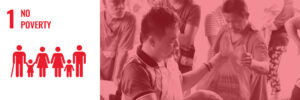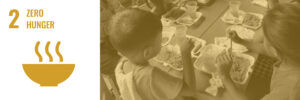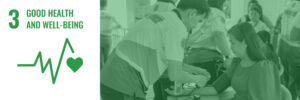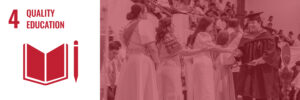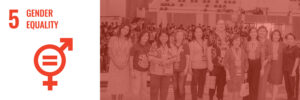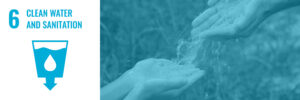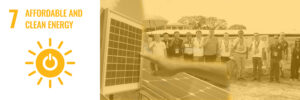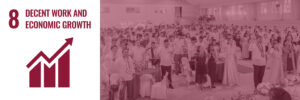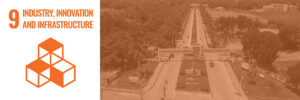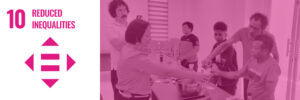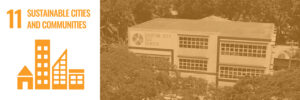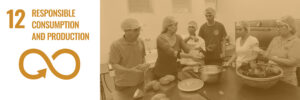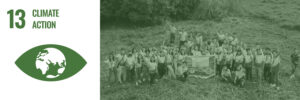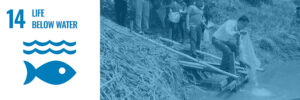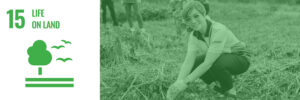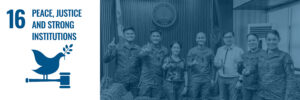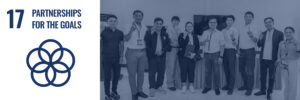2023 – Research | SDG 8 – Decent Work and Economic Growth
Technical Research Category
Upscaling of Postharvest Processing and Shelf-Life of Oyster Mushroom: Processing of Mushroom Steamed Dumpling
Proponents: Norvelyn B. Bautista, Ma. Leonila G. Cabaccan
Abstract
This study presents the results of a sensory evaluation conducted to assess the attributes of oyster mushroom gyoza, with participation from 50 evaluators. The gyoza were evaluated based on five sensory attributes: appearance, aroma, texture, taste/flavor, and general acceptability, using a 1-9 hedonic scale where 1 indicates “dislike extremely” and 9 indicates “like extremely.” The results demonstrated that the gyoza had a mean appearance score of 7.6, indicating favorable visual appeal. Aroma received a mean score of 7.2, suggesting general appreciation but less impact on the overall experience. The texture was highly rated with a mean of 7.8, showcasing a successful combination of the soft wrapper and tender filling. The taste/flavor emerged as the standout attribute, achieving a mean score of 8.3, reflecting strong satisfaction attributed to the umami-rich filling of the oyster mushrooms. The overall acceptability score of 8.0 confirmed that the gyoza were well-liked by the evaluators. The findings highlight the strong visual appeal, favorable texture, and particularly satisfying flavor of the oyster mushroom gyoza, establishing them as a successful plant-based alternative to traditional meat-filled dumplings.
Evaluation of Mycelial Growth of Wood Ear Mushroom (Auricularia auricula-judea) on Different Culture Media
Proponent: Joel P. Bautista
Abstract
This study evaluated the mycelial growth of Auricularia auricula-judea (wood ear mushroom) on different culture media: Potato Dextrose Agar (PDA), Cassava Dextrose Agar (CDA), Rice-Wash Dextrose Agar (RWDA), Sweet Potato Dextrose Agar (SPDA), and Corn Starch Dextrose Agar (CSDA). The experiment was laid out in a Completely Randomized Design (CRD) with three replications. Mycelial growth was monitored by measuring the average diameter of mycelial colonies daily over two weeks. Statistical analysis using ANOVA revealed significant differences in mycelial growth among treatments. Results indicated that CDA and RWDA were comparable to PDA, the standard medium, in supporting mycelial growth. These findings suggest the potential for alternative, cost-effective substrates in mushroom cultivation. this study contributes to identifying sustainable media options for commercial mushroom production.
Social Research Category
Extension
NEGOSYONG PANGKABUHAYAN TUNGO SA KAUNLARAN (NEPANG) PROJECT
Proponents: Josiefel Z. Agcaoili, , Evelyn B. Cristobal, Ed.D,Mary Ann Mamauag, Jose Carlos T. Mamauag, Ronderwin A. Vinasoy
The project Negosyong pangkabuhayan Tungo sa Kaunlaran (NEPANG) is an extension project implemented in the two adopted barangays of the campus. It’s a project implemented by the BSHM/BSHRM Core faculty in collaboration with the BSED program. To fully implement the project, the extensionists used various techniques such that coordination with the Barangay Captains were made prior to the conduct or the project. The initial plans of introducing the project among the participants were implemented as well as distribution of IEC materials were given. Then an intensive training was done highlighting key techniques in producing the products. With a collaborative effort from the extensionists and participants, an evaluation of outstanding was rated to us. The project is timely and relevant because it conforms to various Sustainable Development Goals(SDGs) like SDG1 or No Poverty; SDG2 or Zero Hunger and SDG8, Decent Work. The implementation of entrepreneurial activity targeting development of livelihood enterprises among the participants of the adopted barangays were made possible because of the proponents’ enthusiasm to join in the realization of the SDGs or Sustainable Development Goals that the university wish to attain. Therefore, to have a positive economy where numerous job creation enjoys by the people which output benefits the majority, this Negosyong Pangkabuhayan Tungo sa Kaunlaran (NEPANG) is timely and relevant.
GENDER AND DEVELOPMENT TOWARD GENDER EQUALITY AND WOMEN EMPOWERMENT (PHASE 1)
Proponents: Ruby B. Dimas, Ph.D., Evelyn B. Cristobal, Ed.D., Josiefel Agcaoili, Jerahmeel, Elijah B. Ibale
The program of ISU, San Mariano on Gender and development towards Gender Equality and Women Empowerment is aimed to increase the level of knowledge of its women and men particularly the Gawad Kalinga and 4 P’s Recipients in the adopted barangays of Bitabian, San Mariano, Isabela and Sta. Cruz, Benito Soliven, Isabela. It is focused on Gender Sensitivity:GAD Basic Concepts and its related laws; issues and concerns such as LGBT rights, anti-bullying act, VAWC and values education. Livelihood Enterprise Development Training on Baking and Food processing technologies is also included in the training to augment their income employing different strategies as well as human and material resources. The program is anchored in the attainment of Sustainable Development Goals (SDGs) such as SDG 1, alleviation of poverty and SDG 5 gender equality among the beneficiaries and the community as a whole.
GENDER AND DEVELOPMENT TOWARD GENDER EQUALITY AND WOMEN EMPOWERMENT (PHASE 2)
Proponents: Ruby B. Dimas, Aisie B. Liban, Arnie T. Antonio, Evelyn B, Cristobal, Jaypee A. Zipagan
The extension project of ISU, San Mariano on Gender and development towards Gender Equality and Women Empowerment is aimed to increase the level of knowledge of its women and men particularly the Gawad Kalinga and 4 P’s Recipients in the adopted barangays of Bitabian, San Mariano, Isabela and Sta. Cruz, Benito Soliven, Isabela. It is focused on Gender Sensitivity: GAD Basic Concepts and its related laws; issues and concerns such as LGBT rights, anti-bullying act, VAWC, teenage pregnancy and values education.
As per evaluation made after the conduct of the project, there are favorable results such that: the recipients become gender sensitive individuals of the community, reduced cases of teenage pregnancy, the LGBT group are accepted and respected, reduced incidents on violations against women and their children, internalized the needed values in everyday living.
EDUCATIONAL LITERACY CAPABILITY BUILDING FOR SECONDARY SCHOOL IN SAN MARIANO, ISABELA
Proponents: Aisie O. Bete- Liban, PhD, Apol Joy D. Cagayan, Elizabeth C. Barrera, Grace D. Yanos, Kristopher R. Lopez, Arnie T. Antonio, Rockangel Jamoral, Jaypee A. Zipagan
The educational literacy capability program for secondary school was conducted by the faculty of the Bachelor of Secondary Education Program of ISU San Mariano Campus in partnership with the faculty and students of Daragutan East National High School (DENHS) located at Daragutan East, San Mariano, Isabela. The aim of this extension program is to conduct training and provide knowledge and skills necessary in utilizing the latest educational tools in teaching and learning practices, technical and communication skills needed in enhancing the school publication, and increase participants’ research involvement. There were 62 students and faculty recipients of this program, with 40 females and 22 males. Through series of meetings with partner agency and training conducted, there are 5 conceptualized science investigatory projects presented by the grade 10 students, 3 journalistic writing outputs presented by the student members of school publication and there are 6 conceptualized action research titles presented by the faculty-participants. To ensure continuity of the extension program, the DENHS also assigned a faculty research coordinator, school publication adviser and SIP coordinator to help monitor the participants in continuously working on their outputs. Moreover, an open-line communication was created by the proponents for on-site and online consultations with the participants.
ISU BIDANI-PNEA : A MULTI-FACETED STRATEGY IN EMPOWERING COMMUNITIES THROUGH FORTIFICATION OF PRODUCT DEVELOPMENT,LIVELIHOOD,AND PROPER NUTRITION
Proponents: Martina R.Peñalber, Myleen R. Corpuz, Mila R. Andres, Jhamie Tetz I.Mateo ,MarkhipolitoP.Galingana,Rikka Klaire V. Galinggana
The extension project was an offshoot of the research output of the project team about product development and recipes of the College of Education (CEd)with the undergrad and grad thesis students in Bachelor of Technology and Livelihood Education (BTLEd) and Master of Arts in Teaching major in Home Technology (MAEd-HT). These research outputs became the instrument of this extension project. The project team developed and produced the following products from their research outputs: Cassava-based Sagip, Corn-based Sagip, and Rice-based Sagip, fortified with Cacao Pod Husk power(CPHP) research output of the ISU-Cagayan Valley Cacao Development Center. The output contain nutrients that mitigate Malnutrition.
The objectives of this project were: (1) Determine the demographic profile of the adopted Barangay’s of ISU BIDANI-PNEA; (2) Conduct capacity building on product demonstration for adopted Barangay’s ; (3) Conduct capacity building on product’s basic labeling, packaging, and costing (ROI); (4) Utilizing the produced product, Sagip Nutri-Pack, for Recipe development; (5) Establish rolling stores in the adopted Barangay’s of ISU BIDANI and (6) Determine the number of cases of Malnutrition in the adopted Barangay’s.
The project was able to develop (8) IEC Materials (Recipe/Brochures) developed.(1) IEC Materials was Copyrighted (Recipe/Brochures. Developed (3) Products all fortified with Cacao Pod Husk Power: Cassava-Based Sagip, Corn-Based Sagip, and Rice-Based Sagip.(4) Training designs were crafted; (4) Modules were developed). In terms of Capacity building, 20 males and 50 females were trained and capacitated ; 14 males and 8 females malnourished children were identified. In totality, there were (3) Capacity buildings conducted and two (2) MOU’s forged.
To its impact on the economy, a partnership was established between Isabela State University ,UPLB and LGU-Echague with the Barangay Salvacion, as our 1st pilot from the 15th adopted Barangay’s as the way-forward in Echague, Isabela. Innovation and Product Development led to livelihood for the residents; Rolling stores became an excellent source of livelihood and created jobs for the residents. The knowledge and Skills the residents acquired increase their potential to engage in livelihood training. Increasing residents’ knowledge of product creation leads to livelihood creation in the Barangay. Improve knowledge and skills in product packaging and costing. Utilizing the product helped mitigates Malnutrition. The development of products increases the demand for a larger workforce. Hence, more livelihood was created. Additional income from livelihood allows the residents to earn enough to buy food for the family, especially the children. Economic Impacts. With the creation of more livelihood, job opportunities also increase. Hence, the employment rate also increases. Putting up a Rolling Store means more income generation. Hence, revenue likewise grows, aligned with the SDG no.8 Decent work and Economic Growth
DEKADANG TULONG-DUNONG SA MGA ISABELINO: CS ELIGIBLES NGAYON, CIVIL SERVANTS NG BAYAN BUKAS
Proponent: Marvin Cabantac
Tulong-Dunong sa Kawaning Gobyerno at Kabataan is an extension program of the School of Arts and Sciences at Isabela State University (ISU) Cauayan City Campus. This initiative, in partnership with the Local Government of Cauayan City, the Municipality of Burgos, Isabela, and Alicia Water District, was established to support Bachelor of Arts students in preparing for the annual Civil Service Commission’s Career Service Eligibility Examination, both Professional and Sub-Professional levels.
The program has expanded to include local government employees and personnel from other government-owned and controlled corporations (GOCCs) who aspire to pass the Civil Service Examination (CSE). The review sessions involve both pre- and post-testing on key areas, including Numerical Ability, Verbal Ability, Logical and Reasoning Ability, and General Information, with a focus on the Philippine Constitution.
A team of expert lecturers leads the program, drawing from the faculty of the School of Arts and Sciences, the College of Education, and successful alumni who are certified Career Service Eligibles and Licensed Professional Teachers. Since 2013, successful participants have gone on to serve in various government agencies, benefiting from the security of tenure that comes with being a Career Service Eligible. Alumni of the program now work in diverse roles, including as lawyers, law enforcers, and government employees, contributing meaningfully across different levels of public service.
The program has not only helped improve career opportunities but also uplifted the lives of its participants. The sustained success of Tulong-Dunong sa Kawaning Gobyerno at Kabataan has made a significant impact in the community, empowering individuals to serve the nation as committed civil servants.
WEED BENEFITS – THE UTILIZATION OF GRASSES, SEDGES, AND BROADLEAVES AS SOURCE OF LIVELIHOOD
Proponents: Eloi Theresa A. Romero, Evelyn B. Cristobal, Jackson Ramos
Grasses, sedges, and broadleaves are considered weeds. These are plants whose undesirable features outweigh their desirable characteristics. They are known as pest in the agricultural fields that interfere with crop growth and development through competition and allelopathy. However, since weeds are plants, they have characteristics that can be beneficial to the ecosystem and to man in daily life including as a source of livelihood. One of the potential livelihoods from the use of weeds is through preserving weeds and using it for letter cards, bookmarks, and other handicrafts such as invitation cards bouquet of dried weeds for weddings, birthdays, valentines’ day, and Christmas gift cards.
Youth at Women and Children Protection Center and Lingap Center were the beneficiaries of these projects by teaching them about weed preservation and used it in making valuable products as a source of income. As feedback, the project served as emotional outlet for the youths from Women and Children Protection Center, skills in arts and craftsmanship were discovered and enhanced, learned that weeds can be a source of income, and the skills taught by the project helped each participant become entrepreneurs while staying in the centers and/or leaving the centers to start a new life.
WINGS OF CHANGE: BOOSTING PRODUCTIVITY THROUGH POULTRY PRODUCTION
Proponent: Lilibeth S. Languido
The Isabela State University San Mariano Campus has been well known in terms of Agricultural production from crops to livestock production since 1978. Poultry production is one of the focusses of the institution since the commodity is considered as one of the quickest productions that gives return/ income and requires less capital and labor. In 2021, the campus is one of the lucky recipients of the Poultry Multiplier Farm worth Five Million (5,000,000.00) under the Bayanihan II program of the Department of Agriculture Regional Field Office 02, which aims to alleviate the effect of the Covid-19 pandemic on the affected constituents (Displaced workers) of the community. The University was given the task to produce quality breeders (Rooster and Hen) and chicks, that were dispersed to qualified recipients for upgrading purposes. A repayment scheme was also implemented in which farmers were obliged to repay 20 chicks one year after the receipt of the animals to ensure the continuity of the project. At present a total of eight hundred ninety-six (896) heads have been dispersed in the municipality of San Mariano, with twenty-nine (29) recipients. Eighteen (18) men, and eleven (11) women were empowered through the series of trainings conducted, an increase in population of the Native chicken by the recipient of Brgy. Dibuluan, San Mariano, Isabela at about 180% based on the data was noted and an additional income amounting to 6,968 pesos was reported by various beneficiaries. The project is also aligned with the Sustainable Development Goals addressing SDG nos. 1,2,3, 4,5,8,10,12,15 and 17, in which impacts on the beneficiaries may be measured.

